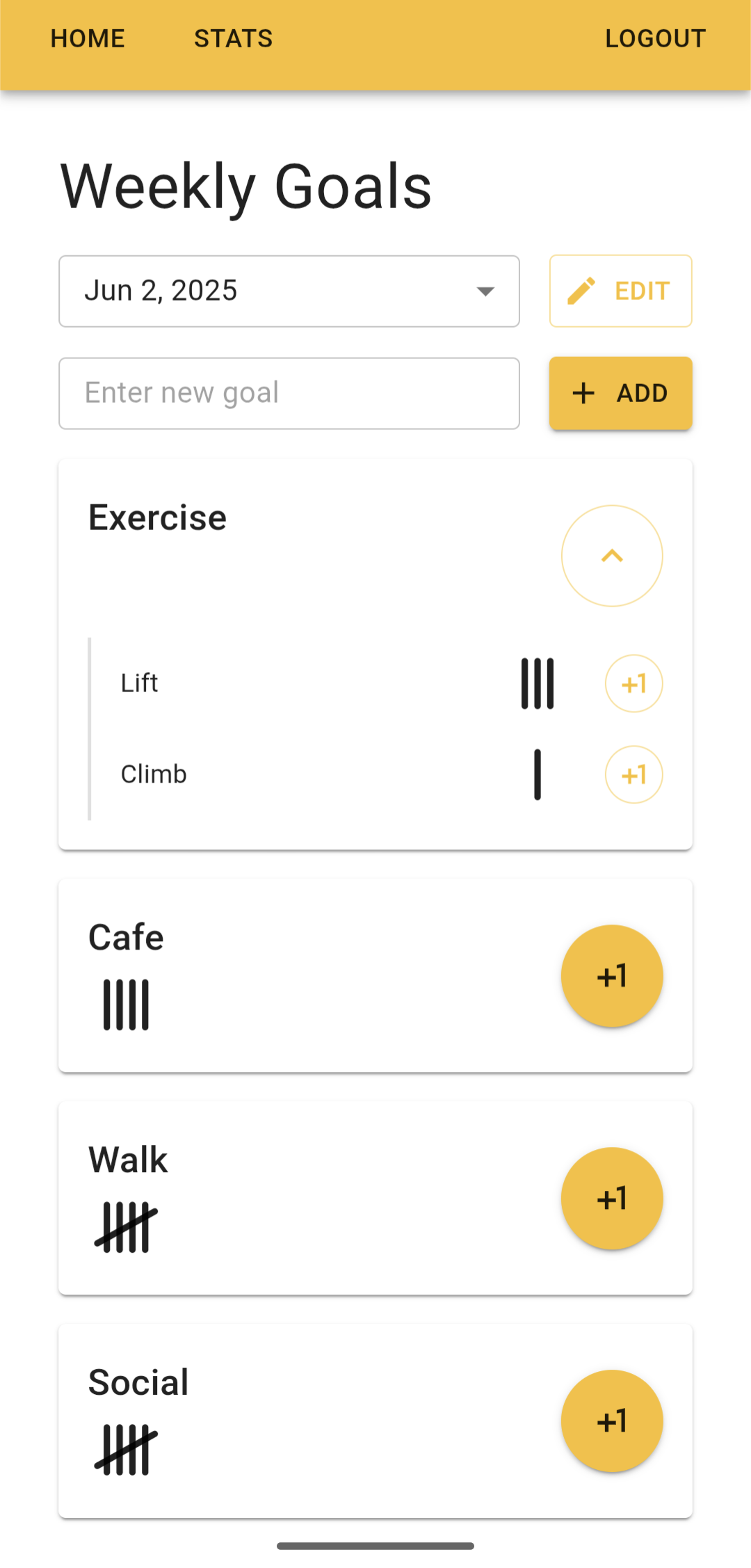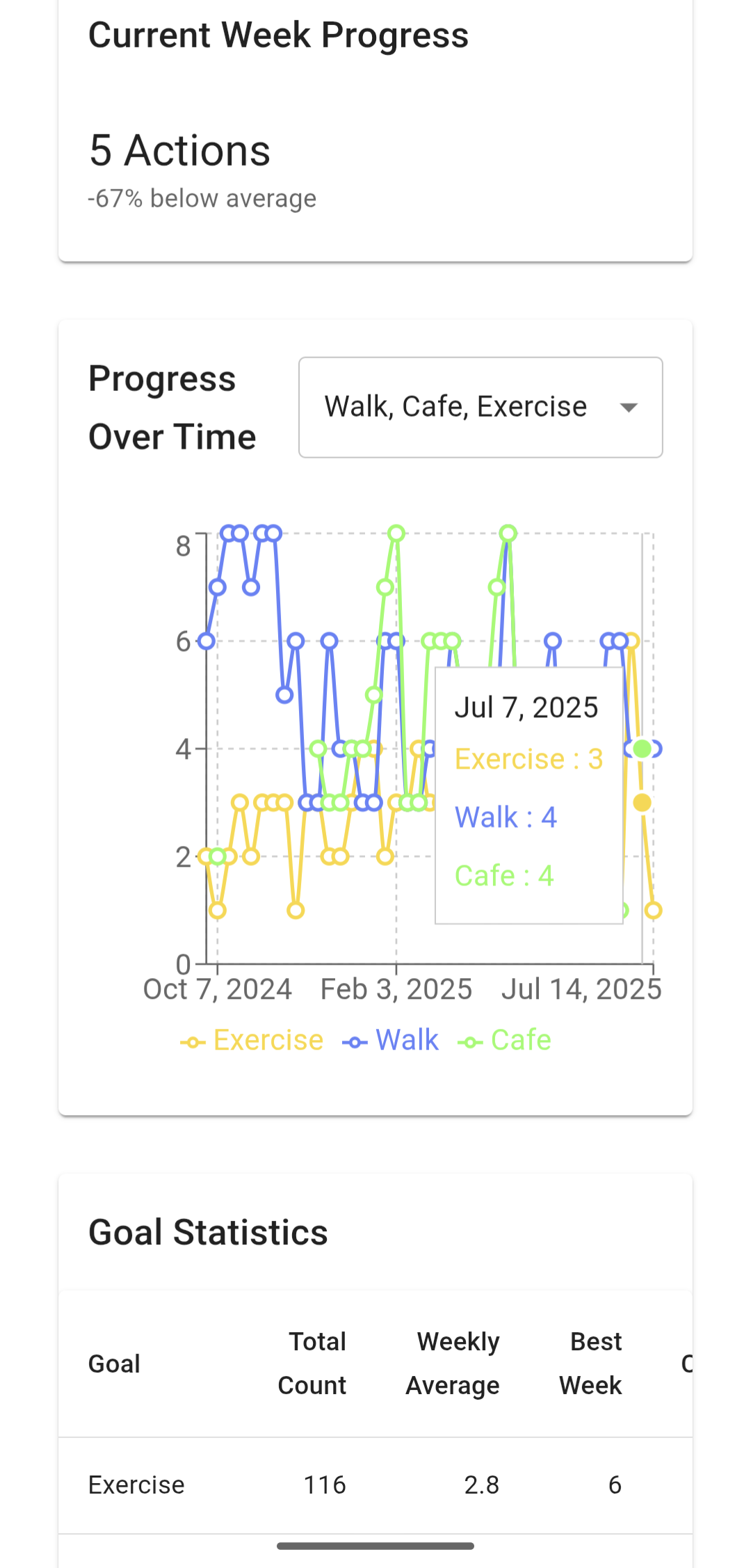Weekly Wins
29 Dec 2024
Weekly Wins is an app I built for myself. I wanted a weekly habit tracker. Not for things with clearly defined targets, but for things I wanted to pay more attention to. I had a feeling that working from a cafe rather than the home office several times a week would improve my productivity and get the creative juices flowing. I knew that regular exercise gives me energy. I wanted to spend time on a new coding project. How much time? “More,” but not in a way that felt like a second job. So I built Weekly Wins to give me a better sense of how many times I undertake my chosen activities in any given week.
Control what matters now
Add weekly goals whenever you like. Add categories to goals - or don’t.

Celebrate success
Track your progress over time and take action based on useful statistics.

Free
I have no plans to monetize this app.
Privacy
Your email address is only used to establish a unique user and send you a login link.
Ulterior Motives
Something for everyone
I’ve been building enterprise software for a decade, but never built something I could put directly in the hands of normal people. And I wanted to. Besides, I viewed my lack of skill in this area as a potential blocker for building something real, something of my own. What if I have a million bucks idea and I can’t even put it in front of a user? I wanted proof that I can work through whatever mess of technical problems arise in an unfamiliar landscape. Which brings me to…
New ecosystem
Having never built web apps, I wanted to get a sense of the current ecosystem, evaluate the current landscape, and get hands-on experience. I settled on React with basic JavaScript and Vite. And since I did not want to maintain a server, I used Firebase for everything backend.
New tools
The Gen-AI assistant wave was getting ahead of me. I’ve been using GitHub Copilot at work, which was promising, but offered little above fancy auto-completions, pattern repetitions, and questionable advice. So, I installed Cursor and got vibe-coding (before that was a meme). My goal was to write as little code by hand as possible and to evaluate the quality produced by the assistant. With my experience, I found it pretty easy to spot stupid things the AI did and to ask the right questions to understand unfamiliar technologies and to troubleshoot issues. I also read the documentation for unfamiliar tools and libraries Cursor pushed for before sticking them into my project. These provide junior engineers with ripe opportunities to lop off various appendages, shoot numerous feet, and step on a Home Depot’s worth of rake inventory. That said, the speed of development of standard features that Cursor offers is really impressive. And your ability to learn by prodding it with pointy questions hugely accelerates what we used to do with Google searches and semi-relevant comment threads on StackOverflow.
